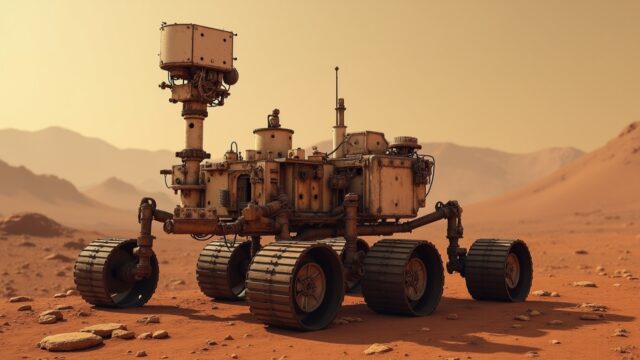Scientists have made a groundbreaking discovery on Mars, uncovering evidence of hot water beneath its surface. The findings reignite excitement about the possibility of alien life on the Red Planet. This revelation emerged from an analysis of minerals found in ancient Martian rocks.
Researchers revealed that these minerals indicate a past environment where hot water flowed, creating conditions favorable for life. The discovery adds to mounting evidence that Mars once had environments similar to Earth.
The team from a top-tier space research organization analyzed rock samples taken by rovers exploring the planet’s surface. These samples contain silicates and carbonates, minerals that form in the presence of hot water. The minerals suggest the existence of hydrothermal systems, which are known to support microbial life on Earth.
Hydrothermal systems create energy-rich environments
“This is a major step in understanding Mars’ history and its potential to support life,” one researcher announced. “Hydrothermal systems create energy-rich environments, which are ideal for life to thrive.”
This discovery challenges previous notions of Mars as a dry and lifeless desert. It also increases speculation that microbial life may have existed billions of years ago. Such findings could fuel future missions aimed at uncovering direct evidence of ancient Martian organisms.
The space community has responded with excitement. Many now push for advanced missions targeting specific sites with promising mineral evidence. Upcoming missions could involve drilling deeper into the Martian surface, where remnants of life could still exist.
The discovery also renews interest in technologies that could detect fossilized microbes or other biosignatures. Some experts suggest redirecting resources to Mars exploration to build on this momentum.
The search for extraterrestrial life enters a thrilling new chapter. Mars may have had all the right ingredients for life in its distant past.
Source: space.com














